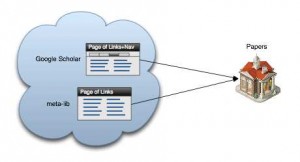These handouts talk about creating a Personal Learning Environment (PLE) with various Web 2.0 tools. There are three activities/handouts
Facebook versus VLE
A collection of links and materials that i’m collating for a section on loss of control – in particular the way that more student interaction may be taking place in social networking sites rather than in institutional owned VLEs. Is this something to worry away, or does it create trust and ownership issues?
imprisoned by your vle (has a link to the delightful analysis referring to Bentham)
Panckhurst, R.; Marsh, D. (2008). Communities of Practice. Using the Open web as a
collaborative Learning platform. iLearn Forum, Paris, France
Selwyn, N. (2007). Screw Blackboard… do it on Facebook! an investigation of students’
educational use of Facebook. [Available at: http://www.scribd.com/doc/513958/Facebook-
seminar-paper-Selwyn, accessed: 17.04.2008]
Naidu, S. (2003). Trends in faculty use and perceptions of e-learning
Good Practice and Innovation, Effective Use of Virtual Learning Environments (2006). JISC
Infonet.
Girls form bonds but boys form bridges
Research discussed in time magazine indicates that girls are more likely to form close knit friendships with a small number of people, whilst boys have larger collections of looser friendships. This seems to be hard wired into the genetic makeup and correlates nicely with the heavily male dominated area of entrepreneurs, which requires wide ranging connectivity.
This all neatly comes back to social capital theory, of course, where strong or weak bonds exist. After reading all the social capital text, i’m starting to see everything in terms of SC, so to rephrase the first paragraph, girls are better at forming bonding SC whilst boys are better at bridging SC.
All extreme generalisations of course!
My Personal Learning Environment workflow – from the cloud to Papers

I’m currently sourcing journal articles on Social Capital, looking for links to learning, learning communities and social networks. Finding these either involves Google Scholar or Lancaster Universities meta-lib which is a web based search engine that collates results from a variety of online journals and the other ‘consolidation’ portals that are out there.
No matter where the journals come from they all end up in Papers, which is effectively iTunes for PDFs. It offers collections (which are like playlists), embedded notes and perhaps most importantly a match facility to get meta information (title, authors, dates, journals etc.) from a variety of online sources automagically. A fantastic piece of software which is a must buy for Mac users doing research.
Social Capital in the Web 2.0 world
Currently working on a literature review of Social Capital – obviously a massive area, so will attempt to narrow it down to recent applications in the specific area of learning and web 2.0. Hopefully the volume of literature will not be too overpowering.
Gale helpfully suggested starting with this:
A Bayesian Belief Network Computational Model of Social Capital in Virtual Communities
Bit irritating to discover that a lot of what I was thinking about covering is knocking about already, although the reference list (and the fact that it was published mid 2007) helps.
